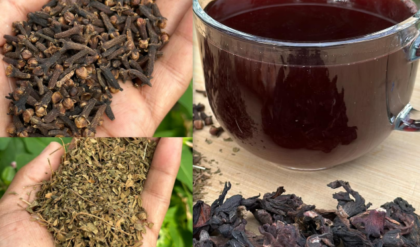Fig leaves, often overshadowed by the popular fruit they accompany, have been used in traditional medicine for centuries. Known for their wide, vibrant green appearance and subtle aroma, fig leaves are packed with nutrients and bioactive compounds that offer numerous health benefits. In recent years, scientific research has begun to validate the benefits of fig leaves, making them a subject of interest in the health and wellness community. This article explores the health benefits, potential uses, and precautions associated with fig leaves.

Nutritional Composition of Fig Leaves
Fig leaves are rich in fiber, essential vitamins, and various phytochemicals, which contribute to their potential health-promoting properties. They contain:
- Vitamin A: Essential for eye health and immune function.
- Vitamin C: An antioxidant that supports skin health and immune response.
- Calcium and Potassium: Important minerals for bone and cardiovascular health.
- Antioxidants: Bioactive compounds like polyphenols and flavonoids that help fight oxidative stress and reduce inflammation.
Health Benefits of Fig Leaves

- Blood Sugar Regulation
Fig leaves are often used in traditional remedies to help manage blood sugar levels. Some studies suggest that fig leaf extract may reduce insulin requirements in people with type 1 diabetes, helping to regulate blood glucose levels. The fiber content in fig leaves also slows carbohydrate absorption, which can stabilize blood sugar levels and prevent spikes. - Heart Health Support
Fig leaves contain antioxidants like polyphenols, which help reduce oxidative stress—a factor linked to cardiovascular diseases. The leaves are also a good source of potassium, which plays a vital role in maintaining blood pressure by counteracting sodium’s effects. Regular consumption of fig leaves, particularly in tea form, may support heart health by improving blood lipid profiles and reducing cholesterol levels. - Anti-Inflammatory Properties
Fig leaves have been shown to contain anti-inflammatory compounds that may reduce inflammation in the body. In traditional medicine, fig leaf extracts are sometimes used to alleviate symptoms of inflammatory conditions like arthritis. These anti-inflammatory effects can also support overall wellness, as chronic inflammation is a known risk factor for many health conditions. - Weight Management
The fiber in fig leaves can promote satiety, making it easier to manage appetite and control calorie intake. Fig leaf tea, when combined with a balanced diet, can support weight management efforts by helping you feel full and satisfied between meals. - Antioxidant Activity
Fig leaves are rich in antioxidants, including flavonoids and polyphenols, which help neutralize free radicals in the body. Antioxidants play a critical role in reducing oxidative damage that can accelerate aging and increase the risk of chronic diseases. Incorporating fig leaves in your diet could, therefore, support long-term health and longevity. - Skin Health
Fig leaves are used in some natural skincare remedies for their potential to soothe and protect the skin. They contain bioactive compounds that may help reduce redness, irritation, and minor skin issues. Some traditional remedies recommend applying fig leaf extracts or poultices directly to the skin to aid healing, though caution is advised as they may cause irritation in sensitive individuals.
How to Use Fig Leaves

- Fig Leaf Tea
Fig leaf tea is one of the most common ways to enjoy the benefits of fig leaves. To prepare, simply boil fresh or dried fig leaves in water for 10-15 minutes, then strain and enjoy. This tea offers a mild, pleasant flavor and can be consumed daily to support overall health. - Cooking with Fig Leaves
Fig leaves can be used in cooking to add a subtle flavor to dishes. They are often wrapped around meats or fish for grilling, imparting a delicate aroma. Some Mediterranean and Middle Eastern cuisines use fig leaves in stews and soups, which allows for nutrient extraction during the cooking process. - Topical Applications
Crushed fig leaves or fig leaf extracts are sometimes applied directly to the skin in traditional remedies for minor skin issues. If you’re interested in trying fig leaves topically, start with a small area to test for any potential allergic reaction. - Fig Leaf Supplements
Fig leaf supplements are available in capsule or powder form and can be a convenient way to incorporate fig leaf benefits into your routine. These supplements are typically standardized to ensure consistency in dosage, although it’s best to consult a healthcare provider before starting any new supplement regimen.
Precautions and Potential Side Effects

While fig leaves offer a wide range of health benefits, there are a few precautions to keep in mind:
- Skin Sensitivity: Fig leaves contain furocoumarins, which can make the skin more sensitive to sunlight and potentially cause irritation or photodermatitis. Always wash your hands after handling fig leaves, and avoid applying them directly to the skin before sun exposure.
- Allergic Reactions: Some individuals may experience allergic reactions to fig leaves. If you are trying fig leaves for the first time, especially in a topical form, consider conducting a patch test.
- Medication Interactions: Due to their effects on blood sugar and blood pressure, fig leaves may interact with certain medications. If you are taking medications for diabetes or blood pressure, consult your doctor before consuming fig leaves regularly.
Conclusion: A Unique, Natural Health Booster

Fig leaves are a valuable but often overlooked part of the fig tree that offers a range of health benefits, from blood sugar regulation to heart health and inflammation reduction. While more research is needed to fully understand the extent of their benefits, traditional medicine has long valued fig leaves for their healing properties. As with any natural remedy, moderation is key, and it’s wise to consult a healthcare professional to ensure that fig leaves are a safe and beneficial addition to your health routine.
Whether enjoyed as a tea, in culinary dishes, or as a supplement, fig leaves are a versatile and nutrient-rich way to support your wellness naturally.





